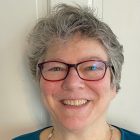BUILD Statement On The Recent Events In Charlottesville
Authors
-
Susan Hibbard
Executive Director, BUILD Initiative

In this blog post, BUILD’s Executive Director provides a response in support of the Charlottesville protests against racism and anti-Semitism in 2017.
If only the violence, racism, and anti-Semitism against which thousands protested in Charlottesville last weekend were unimaginable in the United States. Unfortunately, the weekend’s occurrences were just a more visible display of everyday reality in the US. The same (often less overt) vitriol, hate, and violence have marred our country throughout its history, met at each step forward by many of us who have been blocked from opportunity, including Blacks, Jews, Latinos, immigrants, women, and the LGBT community. As the author observes in this Washington Post article with regard to Ferguson, Charlottesville is just “the latest outbreak of white rage.”
All of us who care about young children and families, safety, access to opportunity, and democracy itself, must stand up and speak out, just as the counter-protesters did. We must act as individuals and as organizations. We must not stop until racial hatred and violence are unimaginable in our society. And, some of us who have the privileges connected with being white and having a stable income should step up, speak out, and take action disproportionately—because we have power in political and social systems and are disproportionately protected from the potential repercussions.
These actions should feel familiar and connected to our early childhood efforts. Much of the federal and state work to support young children and their families has been either about providing access to those whose access was blocked or improving quality, especially for those who cannot shoulder alone its high cost. Removing barriers to healthy development and increasing access to early learning, early intervention, health and family supports, oral health, and nutritious food are all core to our early childhood agenda.
The youngest residents of our country do not have a voice of their own. We must speak up for them, make space for families to be heard, and ensure that their chance to thrive is not stolen from them by white supremacists, our silence, or unwitting policymakers who don’t understand the impact of “colorblind” policies. And, although young children cannot vocalize their policy needs, they do have ears. They can hear the rhetoric. They can sense the impact on the adults in their lives. They also feel the real impact of actions—a parent unemployed, deported, jailed, or killed, if dismantling affirmative action closes the door on their family’s educational hopes, if they are forced to live in a neighborhood that is a food desert where fresh fruits and vegetables are not to be found and where public transportation fails them and their family.
Racism—made up of multiple micro-aggressions each day—can be a form of trauma for young children and contributes to both the health and education challenges in early childhood (see, for example, How the Stress of Racism Affects Learning and How Racism Is Bad for Our Bodies, both from The Atlantic). Whether we are battling white supremacists or promoting healthy child development in other ways, we know that each takes community-building and family-strengthening strategies. Vital Village’s work provides a great example of the power of collective community efforts; BUILD is looking forward to our health equity partnership project with Boston Medical Center/Vital Village and Nemours that will begin this fall where we will help community and state leaders amplify family voice and use data to understand and address barriers to opportunity.
*****
BUILD is a catalyst for state leaders to maximize opportunities and dismantle barriers to the optimal development of young children, their families, and communities. BUILD places equity at the center of our work. We are a whole child initiative that understands the need to focus on the adults in the child’s life and the child’s community to ensure healthy child development and learning. BUILD provides tools, expertise and support to state leaders who are working in the complex, deeply interdependent child- and family-serving systems. Let us know what you are doing to promote equity and dismantle barriers to opportunity. Let’s talk about how we can support your efforts.
Explore More
Collaborative Leadership and Power Lessons on Authentic Family and Community Partnerships
Video June 20, 2024
During this one-hour webinar, hosted in partnership with Vital Village Networks, you’ll witness the limitless wisdom and leadership that lives in our communities. Hear about best practices and lessons learned from prenatal-to-three (PN3) coalitions across the country that are working to shift and share power with parents and community partners. We’ll explore what it looks like to build trust and relationships while redesigning what it means to lead together for the health and wellbeing of our children.

Family Engagement
Report June 13, 2024
Family engagement at the state and local level is an essential component of high-quality, inclusive early childhood care and education (ECCE) programs and systems. Engaging families as partners during the early years allows parents and caregivers to establish strong connections that support their children’s development, well-being, and achievement long term.
Ideas for Incorporating Strategic Financing Efforts into Your PDG B5 Application
Report June 13, 2024
This resource outlines ideas for incorporating strategic financing efforts into your PDG B-5 application.
